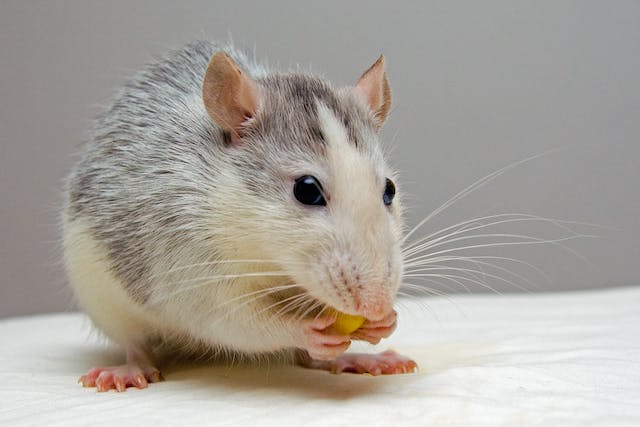Will Rats Leave if There Is No Food?
It can be concerning when rats are found in and around our homes. It’s a popular misconception that rats are drawn to food alone. But does the lack of food ensure that these creatures will move on? In this thorough investigation, we dissect the behaviour of rats and find out if they really will depart when their main source of motivation—food—is eliminated.
Will Rats Leave if There Is No Food?: Discover the Definitive Answer
Will Rats Leave if There Is No Food? In light of the laws of nature, which state that animals require food and water to survive, let’s investigate the possibility later. Why would any animal remain there if there was no food?
The rats are on your property because they have discovered an excellent food source, regardless of where the rodents are coming from—your neighbor’s yard or any other nearby areas.
The rats will depart from your property if they cannot find food. Rats must always have access to food, or else they will find another place to eat.

Understanding Rat Behavior
It’s important to understand the fundamentals of rat behaviour before we dive into the current question. Rats are incredibly adaptive animals with strong survival instincts. They look for places that provide warmth, shelter, and yes, a sufficient amount of food. But rats and their environment are more than just related in terms of food availability.
The Role of Shelter and Nesting Sites
Rats are drawn to suitable shelter and nesting sites just as much as food, though both of which is a major factor. Rats may find an environment with plenty of hiding places, materials for making nests, and warmth to be equally attractive as one with an abundance of food. Comprehending this wider viewpoint is essential for determining whether rats will depart in the event that food sources are eliminated.
Population Dynamics and Rat Infections
Infestations by rats are rarely isolated events. Rats are social creatures that do best in groups. It’s important to take into account the overall population of rats when determining whether they will depart in the event of food scarcity. These rodents’ decisions to remain or move can be influenced by their social connections within a community.
Survival Adaptations of Rats
Rats are known to be highly adaptive and resourceful. Their inherent need to survive pushes them to investigate and take advantage of a variety of habitats. Rats may turn to scavenging, exploring new areas, or modifying their diet to fit what is available if one food source is exhausted. Because of this adaptability, it is difficult to forecast their disappearance based only on the loss of a single food source.
Reproductive Considerations
Rats breed prolifically, which can lead to rapid population growth. The dynamics of rat behaviour can be further complicated by the fact that female rats can give birth to multiple litters annually. Rats’ decision-making process is further complicated by the presence of offspring because their maternal instincts make them put their young’s safety and wellbeing first.
Human Intervention and Rat Control
Human intervention is essential in dealing with rat infestations. Eliminating food sources is a smart first step in controlling rats, but it might not be the only one. Rats are more likely to leave when effective rodent-proofing measures, like sealing entry points and removing nesting sites, are used in conjunction with food removal.
Rats’ Memory and Learning Abilities
Rats have remarkable recall and learning capacities. They are more likely to recall a location if they link it to regular access to food, even in the event that the food source is momentarily eliminated. This memory-based behaviour may affect their choices to go back to known places, even if there isn’t food available at the moment.
Interesting Facts Regarding Rats:
Olfactory Communication: Rats communicate through smell identification. The removal of food has less of an effect on the rats’ overall navigation because they leave smell trails that direct other rats to food sources.
Nocturnal Nature: Rats are nocturnal animals that would rather be active at night. This behaviour can interfere with the timing and visibility of their movements, making it difficult to reliably determine whether they are present.
How Long Can a Rat Live Without Food?
The question of how long a rat can go without food is unanswered, however some sources state that it can only survive for about four days. That is, however, largely dependent on the organism of the rat.
Rats can definitely survive longer without water than they could if they had no food. This is as a result of the fluid that they obtain from their diet.
Furthermore, rats like squirrels like to store the food they find. This enables them to maintain some reserve in the event that their food supply is temporarily interrupted.
Conclusion: Will Rats Leave if There Is No Food?
the question of Will Rats Leave if There Is No Food? is a complex one in the intricate dance between them and their surroundings. A major contributing factor is the lack of food, but there are other factors as well, like nesting sites, shelter, and the complex structure of rat populations. A comprehensive strategy that tackles both eliminating food sources and making an unfriendly atmosphere for rats is necessary for effective rat control.
Have you encountered rat-related difficulties? If so, what worked for you as a strategy? We cordially encourage you to add to the continuing discussion about controlling rat infestations by sharing your experiences and thoughts in the comments section below!
Don’t forget to contribute your insightful thoughts on Will Rats Leave If There Is No Food?
Check out our more articles on Birds & Animals Here
- Can chickens fly? Uncover the amazing secrets of chicken flight, from anatomy to breed variations.
- Ostrich Skeleton: Exploring the Fascinating Mysteries
- How High Can Chickens Fly? Dark reality check by Unlocking the Mysteries of Clucky Aeronautics
- What is a baby ostrich called? : Revealing the Strange Truth
- Why do cats like to be spanked? : Understanding the Strange Cat Behaviour
- Will Rats Leave if There Is No Food?: Discover the Definitive Answer
Watch the video: How A Chick is Born From An Egg – A Fascinating Journey into Life!
Watch video: Why do cats like to be spanked?
Watch video : 5 Fascinating Facts About Rats










